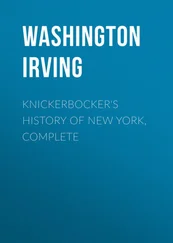“Yes, we both are,” Father said.
The man’s perfect clothes were unaffected by his voyage. For so early in the summer he was very tanned, and he offered my mother and father cigarettes from a handsome flat black box. They didn’t smoke. “I’d hoped to catch the last dance,” the man said, “but the band has retired?”
“Yes,” my mother said. At nineteen, my mother and father had never seen anyone quite like this man. “He had obscene confidence,” my mother told us.
“He had money,” Father said.
“Have Freud and the bear arrived?” the man asked.
“Yes,” Father said. “And the motorcycle.”
The man in the white dinner jacket smoked hungrily, but neatly, while he looked at the dark hotel; very few rooms were lit, but the outdoor lights strung to illuminate the paths, the hedgerows, and the docks shone on the man’s tanned face and made his eyes narrow and were reflected on the black, moving sea. “Freud’s a Jew, you know,” the man said. “It’s a good thing he got out of Europe when he did, you know. Europe’s going to be no place for Jews. My broker told me.”
This solemn news must have impressed my father, eager to enter Harvard—and the world—and not yet aware that a war would interrupt his plans for a while, the man in the white dinner jacket caused my father to take my mother’s hand into his, for the second time that evening, and again she gave equal pressure as they politely waited for the man to finish his cigarette, or say good night, or go on.
But all he said was, “And the world’s going to be no place for bears !” His teeth were as white as his dinner jacket when he laughed, and with the wind my father and mother didn’t hear the hiss of his cigarette entering the ocean—or the sloop coming alongside again. Suddenly the man stepped to the ladder, and only when he slipped quickly down the rungs did Mary Bates and Win Berry realize that the white sloop was gliding under the, ladder and the man was perfectly in time to drop to its deck. No rope passed bands. The sloop, not under sail but chugging slowly under other power, turned southwest (toward Boston, or New York, again)—unafraid of night travel—and what the man in the white dinner jacket last called to them was lost in the sputter of the engine, the slap of the hull on the sea, and the wind that blew the gulls by (like party hats, with feathers, bobbing in the water after drunks had thrown them there). All his life my father wished he’d heard what the man had to say.
It was Freud who told my father that he’d seen the owner of the Arbuthnot-by-the-Sea.
“ Ja , that was him, all right,” Freud said. “That’s how he comes, just a couple of times a summer. Once he danced with a girl who worked here—the last dance; we never saw her again. A week later, some other guy came for her things.”
“What’s his name” Father asked.
“Maybe he’s Arbuthnot, you know?” Freud said. “Someone said he’s Dutch, but I never heard his name. He knows all about Europe , though—I can tell you that!”
My father was dying to ask about the Jews; he felt my mother nudge him in his ribs. They were sitting on one of the putting greens, after hours—when the green turned blue in the moonlight and the red golfing flag flapped in the cup. The bear called State o’Maine had his muzzle off and was trying to scratch himself against the thin stem of the flag.
“Come here, stupid!” Freud said to the bear, but the bear paid no attention to him.
“Is your family still in Vienna?” my mother asked Freud.
“My sister is my only family,” he said. “And I don’t hear nothing from her since a year ago March.”
“A year ago March,” my father said, “the Nazis took Austria.”
“ Ja , you’re telling me ?” Freud said.
State o’Maine, frustrated by the lack of resistance the flagpole gave him—for scratching—slapped the flagpole out of the cup and sent it spinning across the putting green.
“Jesus God,” said Freud. “He’s going to start digging holes in the golf course if we don’t go somewhere.” My father put the silly flag, marked “18,” back into the cup. My mother had been given the night off from “serving” and was still in her chambermaid’s uniform; she ran ahead of the bear, calling him.
The bear rarely ran. He shambled—and never very far from the motorcycle. He rubbed up against the motorcycle so much that the red fender paint was shined as silvery as the chrome, and the conical point of the sidecar was dented in from his pushing against it. He had often burned himself on the pipes, going to rub against the machine too soon after it had been driven, so that there were ominous patches of charred bear hair stuck to the pipes—as if the motorcycle itself had been (at one time) a furry animal. Correspondingly, State o’Maine had ragged patches in his black coat where his fur was missing, or singed flat and brown—the dull colour of dried seaweed.
What exactly the bear was trained to do was a mystery to everyone—even something of a mystery to Freud.
Their “act” together, performed before the lawn parties in the late afternoon, was more of an effort for the motorcycle and Freud than it was an effort for the bear. Around and around Freud would drive, the bear in the sidecar, canopy snapped off—the bear like a pilot in an open cockpit without controls. State o’Maine usually wore his muzzle in public: it was a red leather thing that reminded my father of the face masks occasionally worn in the game of lacrosse. The muzzle made the bear look smaller; it further scrunched up his already wrinkled face and elongated his nose so that, more than ever, he resembled an overweight dog.
Around and around they would drive, and just before the bored guests returned to their conversation and abandoned this oddity, Freud would stop the motorcycle, dismount, with the engine running, and walk to the sidecar, where he would harass the bear in German. This was funny to the crowd, largely because someone speaking German was funny, but Freud would persist until the bear, slowly, would climb out of the sidecar and mount the motorcycle, sitting in the driver’s seat, his heavy paws on the handlebars, his short hind legs not able to reach the footposts or the rear-brake controls. Freud would climb into the sidecar and order the bear to drive off.
Nothing would happen. Freud would sit in the sidecar, protesting their lack of motion; the bear would grimly hold the handlebars, jounce in the saddle, paddle his legs back and forth, as if he were treading water.
“State o’Maine!” someone would shout. The bear would nod, with a kind of embarrassed dignity, and stay where he was.
Freud, now raging in a German everyone loved to hear, climbed out of the sidecar and approached the bear at the controls. He attempted to show the animal how to operate the motorcycle.
“Clutch!” Freud would say: he’d hold the bear’s big paw over the clutch handle. “Throttle!” he would shout: he’d rev the motorcycle with the bear’s other paw. Freud’s 1937 Indian had the gearshift mounted alongside the gas tank, so that for a frightening moment the driver needed to take one hand from the handlebars to engage or change gears. “Shift!” Freud cried, and slammed the cycle into gear.
Whereupon the bear on the motorcycle would proceed across the lawn, the throttle held at a steady low growl, neither accelerating nor slowing down but moving resolutely toward the smug and beautifully attired guests—the men, even fresh from their sporting events, wore hats; even the male swimmers at the Arbuthnot-by-the-Sea wore bathing suits with tops, although the thirties saw trunks, on men, prevailing more and more. Not in Maine. The shoulders of the jackets, men’s and women’s, were padded; the men wore white flannels, wide and baggy; the sportswomen wore saddle shoes with bobby socks; the “dressed” women wore natural waistlines, their sleeves frequently puffed. All of them made quite a colourful stir as the bear bore down on them, pursued by Freud.
Читать дальше












